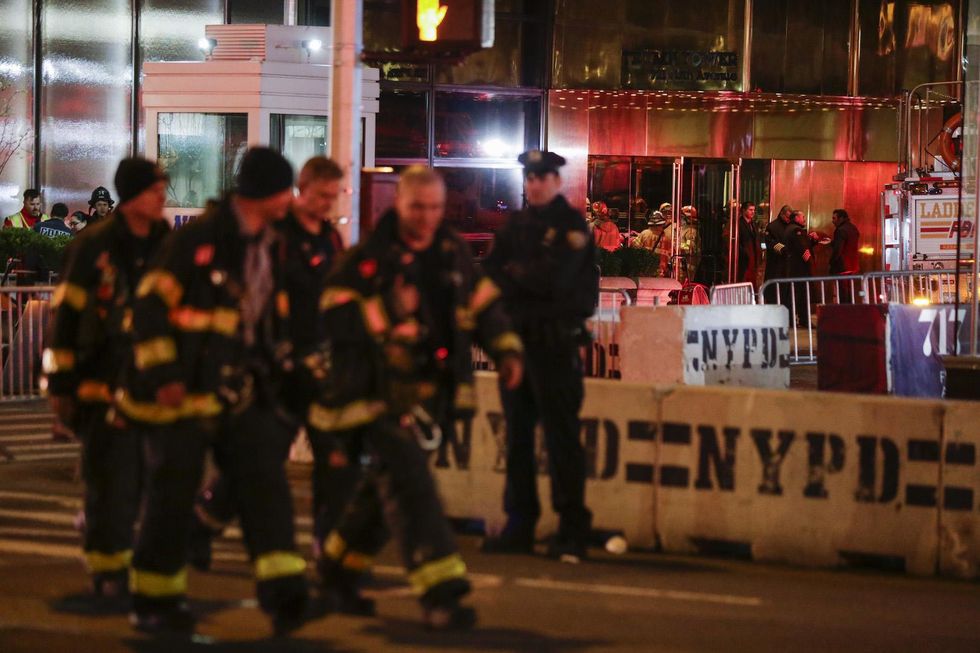
A new study shows that first responders are at a higher risk of suicide than the general population. (Eduardo Munoz Alvarez/Getty Images)

More first responders died by suicide than in the line of duty in 2017, according to a new study showing that the dangers police officers and firefighter face on a daily basis include more than just fires and criminals.
The study, published by the Ruderman Family Foundation, illustrates that first responders have higher suicide rates than the general population, but often don’t have the mental health resources they need to cope with stress of their jobs.
According to the study, at least 103 firefighters and 140 police officers committed suicide in 2017, while 93 firefighters and 129 police officers died in the line of duty.
Also, it’s estimated that only 40 percent of firefighter suicides are reported, making it possible that more than twice as many firefighters take their own life than lose it on the job.
Thirteen out of every 100,000 people in the general population commit suicide. For police officers, that number goes up to 17 and for firefighters, it's higher at 18.
That doesn’t include issues faced by those first responders who struggle with post-traumatic stress disorder or depression whose lives are negatively impacted even though they do not commit suicide.
The study reveals that only 3 percent to 5 percent of law enforcement agencies in America have suicide prevention programs.
Jay Ruderman, the president of the Ruderman Family Foundation, said the study is meant to be a call to action that can lead to more awareness and more mental health services for first responders.
“First responders are heroes who run toward danger every day in order to save the lives of others,” Ruderman said. “They are also human beings, and their work exerts a toll on their mental health.
“It is our obligation to support them in every way possible — to make sure that they feel welcome and able to access life-saving mental health care. This white paper should serve as a critical call to action to all who care about our heroes in red and blue.
(H/T: USA Today)